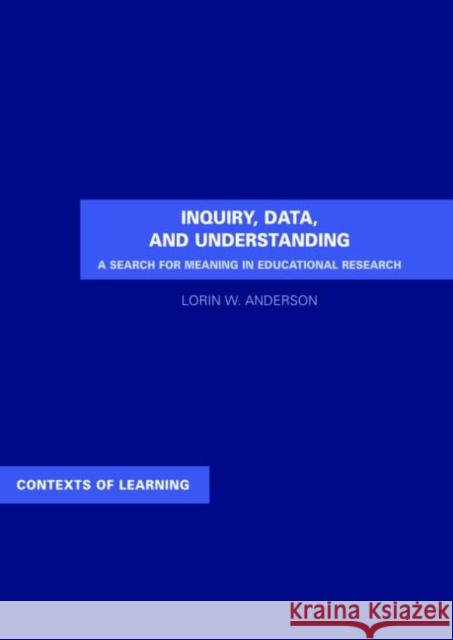Inquiry, Data, and Understanding: A Search for Meaning in Educational Research » książka
Inquiry, Data, and Understanding: A Search for Meaning in Educational Research
ISBN-13: 9789026519536 / Angielski / Twarda / 2007 / 272 str.
Inquiry, Data, and Understanding: A Search for Meaning in Educational Research
ISBN-13: 9789026519536 / Angielski / Twarda / 2007 / 272 str.
(netto: 886,26 VAT: 5%)
Najniższa cena z 30 dni: 906,73
ok. 22 dni roboczych.
Darmowa dostawa!
Inquiry, Data, and Understanding is a reflective collection of papers in which Lorin Anderson offers his personal perspective on developments in educational research over thirty years.
Following an introductory chapter, in which educational research is defined as disciplined inquiry, the remaining chapters are divided into four sections: time and learning, factors influencing educational effectiveness, international perspectives, and the nature and purpose of educational research. Each section contains an introduction that places the chapters in that section in a historical and personal context.
The fourth section, which concludes the book, summarises four lessons that were learned about becoming a researcher. Based on these lessons, the final chapter describes four needs that must be met if school and classroom research is to move forward:
* The need for concept-based research
* The need to put students back into the equation
* The need to stop focusing on correlates of student achievement
* The need for research on alterable variables.
Inquiry, Data, and Understanding is a reflective collection of papers in which Lorin Anderson offers his personal perspective on developments in educational research over thirty years.
Following an introductory chapter, in which educational research is defined as disciplined inquiry, the remaining chapters are divided into four sections: time and learning, factors influencing educational effectiveness, international perspectives, and the nature and purpose of educational research. Each section contains an introduction that places the chapters in that section in a historical and personal context.
The fourth section, which concludes the book, summarises four lessons that were learned about becoming a researcher. Based on these lessons, the final chapter describes four needs that must be met if school and classroom research is to move forward:
* The need for concept-based research
* The need to put students back into the equation
* The need to stop focusing on correlates of student achievement
* The need for research on alterable variables.











